DATAMARK Technologies Reinforces Commitment To FCC’s Next Generation 9-1-1 Regulations
July 24, 2024

DATAMARK Technologies, a leader in interoperable solutions for public safety location services comprised of DATAMARK, Michael Baker International‘s innovative public safety geographic information systems (GIS) division, and Digital Data Technologies, Inc., (DDTI), today announced its current product alignment, as well as future development plans, in support of the Federal Communication Commission’s (FCC) Regulations Facilitating The Implementation Of Next Generation 9-1-1 Services. The recently announced partnership is spearheading the development of innovative public safety location offerings that will set the benchmark for future emergency response solutions. This initiative underscores the company’s unwavering commitment to public safety and its pivotal role in the evolution of Next Generation 9-1-1 (NG9-1-1) services.
“The FCC’s Next Generation 9-1-1 Regulations are a groundbreaking advancement of our nation’s 9-1-1 system – one that will help ensure that this emergency infrastructure functions effectively and supports the deployment of more advanced capabilities. These critical upgrades will ultimately help first responders and public safety personnel save lives,” said Mitch Pinkston, CEO at DATAMARK Technologies. “Our team at DATAMARK Technologies is committed to providing solutions that align with the new rules adopted by the FCC. We believe that accurate location information matters during an emergency call, and we will continue to do our part to make that a reality. Our team of experts is ready to help Originating Service Providers (OSPs) and 9-1-1 stakeholders navigate the critical timeline laid out in the Report and Order as we move toward the implementation of NG9-1-1 throughout the country.”
The Report and Order emphasizes the criticality of overhauling the nation’s Legacy 9-1-1 system in favor of transitioning to NG9-1-1. It requires OSPs to deliver 9-1-1 traffic in IP-based Session Initiation Protocol (SIP) format to one or more in-state delivery points designated by the 9-1-1 Authority. Additionally, it requires embedding the caller’s location information in the call signaling and implementing a Location Information Server (LIS) for the verification of its customer location information and records.
Key components of the Report and Order include ensuring NG9-1-1-compliant GIS data, Next Generation Core Services (NGCS) solutions that support location validation for 9-1-1 callers and interoperability of data and technology. As the only organization offering interoperable GIS and NGCS location services on the market today, DATAMARK Technologies is well positioned to support the current needs of OSPs and 9-1-1 stakeholders.
DATAMARK Technologies’ suite of products provides a fully-integrated GIS solution that ensures data accuracy and completeness from the birth of an address to the 9-1-1 call. This all-inclusive workflow allows for a more efficient, precise and compatible feedback loop with multiple quality control checkpoints and includes:
- LDB/LIS (Location Database/Location Information Server): The LDB/LIS can be deployed within an ESInet as an LDB to provide transitional location services to replace a legacy ALI (Automatic Location Identification) system. The LDB/LIS can also be deployed outside of an ESInet as a LIS to assist OSPs by providing location in a native i3 call delivery. The DATAMARK Technologies LDB/LIS is the only solution on the market that natively stores all location data in CLDXF (Civic Location Data Exchange Format) per the NENA i3 standards. The LDB/LIS validates location information using the LVF (Location Validation Function) and generates PIDF-LO (Prescence Information Data Format – Location Object) to be embedded in the call signaling.
- VEP (Validate – Edit – Provision): DATAMARK Technologies VEP is a full-service software-as-a-service (SaaS) solution for end-to-end GIS data aggregation, preparation and maintenance for NG9-1-1. Clients can use VEP to conduct GIS data aggregation and reconciliation for not only their own GIS datasets, but also among neighboring jurisdictions. Using VEP ensures that jurisdictional boundaries are seamless and reconciles NG9-1-1 GIS data with legacy 9-1-1 databases and related GIS datasets.
- DataManager: The DataManager product makes authoritative GIS data available to NG9-1-1 functional elements (ECRF/LVF, map displays, CAD, etc.). DataManager provides a quality control process that runs continuously and evaluates updates as they are incorporated into the core database; a data publishing function that transforms, formats and exports the data from the core database into the ECRF or other databases based on the client’s needs; and a secure web interface for enabling administrators to configure quality control and data publishing rules, control users, permissions, and display options.
- ECRF (Emergency Call Routing Function)/ LVF (Location Validation Function): The ECRF is a scalable, NENA and IETF-compliant LoST (Location-to-Service Translation) server that accepts LoST queries (containing a civic address or geodetic information, as well as the desired emergency service) and returns the appropriate PSAP (Public Safety Answering Point) call routing information based on stored GIS data. The LVF validates that a civic address stored in the LDB can be uniquely located in the GIS database, can be properly associated with the correct PSAP and can provide first responders with a “dispatchable” location.
To further support the emerging demands of this market, DATAMARK Technologies is currently developing solutions to expand the capabilities of NG9-1-1 geospatial location services. Additional details about the expanded capabilities will be announced in Fall 2024.
For more information regarding DATAMARK Technologies’ current solutions and upcoming developments, visit https://datamarkgis.com/.
Areas of Focus:

